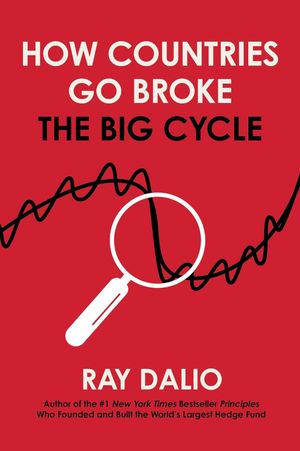Do big government debts and fast rates of adding to them threaten our collective well-being? In this groundbreaking analysis, Ray Dalio, one of the greatest investors of our time and the #1 New York Times bestselling author of Principles, shares the reasons behind his fears for the US debt markets, answering some of the most important market and economic questions we now Are there limits to debt growth? Can a big, important reserve currency country like the US really go broke? Is there such a thing as a “Big Debt Cycle” that can tell us when to worry about debt and what to do about it?
For decades, politicians, policymakers, and investors have debated these questions, but the Big Debt Cycle that helps answer them is not talked about or well understood. With the US debt issue coming to a head, Dalio’s How Countries Go Broke provides the first-ever detailed analysis of the Big Debt Cycle, explaining its implications and offering a surprisingly straightforward solution to getting debt problems like the ones the US faces under control.
Dalio has built his career as a leading global macro investor by studying the patterns of history to develop unconventional perspectives on what’s happening in markets and economies today. It was this approach that led him, in the years leading up to the 2008 Great Financial Crisis, to study the Great Depression and other past big debt crises and use what he learned to navigate the turbulent markets successfully. By looking closely at thirty-five cases over the past 100 years when governments have gone broke and studying the mechanics behind them, Dalio has developed a first-of-its-kind template for what to watch for and what to do when the threat is significant as his measures show that it now is. He has discussed this template with treasury secretaries and central bankers from around the world and is now sharing it with the public to help bring urgent attention to the big risks the US and a number of other countries face—and to explain how to avoid the worst-case scenario.

